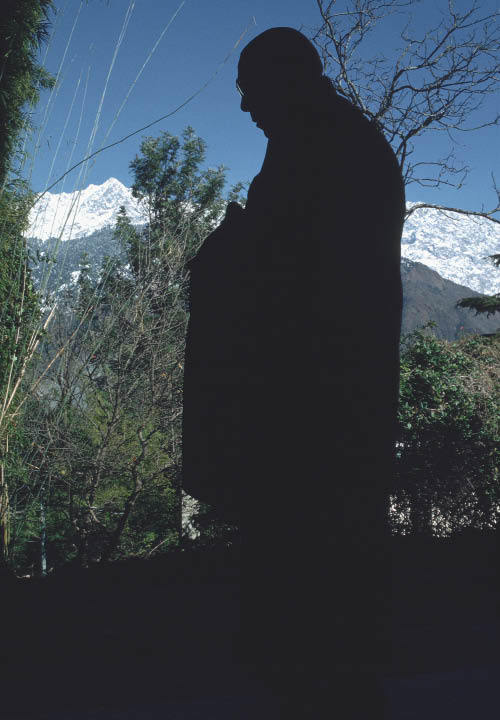Surely no political process in the modern world is more shrouded in mystery than the way the Chinese select a new supreme leader — except perhaps the occult divination practised by the Tibetans.
Surely no political process in the modern world is more shrouded in mystery than the way the Chinese select a new supreme leader — except perhaps the occult divination practised by the Tibetans. We may already be sure that Xi Jinping will succeed the dour and uncharismatic Hu Jintao as the 14th General Secretary of the Chinese Communist Party in 2012, but precious little is known about him or his views.
By contrast the 14th Dalai Lama is a global celebrity, as venerated as Nelson Mandela, welcomed by kings and presidents as if he were indeed the head of state. Yet he is 72 and one day soon the Tibetans will have to search for the 15th reincarnation, inevitably a child, who will have to continue to lead the Tibetans in a David-and-Goliath fight.
The prospect is alarming, as China grows ever more powerful and assertive. It is why the veteran American correspondent Tim Johnson has chosen to assess what has gone so wrong for the Tibetans. In Tragedy in Crimson, he travels around the world investigating why a movement that has become so well organised and backed by A-list Hollywood celebrities has failed so dismally to achieve any of its aims.
As Johnson points out, the latest Tibetan uprising in 2008 was born out of frustration at the lack of progress and the fears that it will soon be too late to stop China absorbing Tibet irrevocably. For a long time, the immense physical barrier of the Himalayas saved the Tibetans from the fate of the Mongols. The arrival of the railways after 1900 brought tens of millions of Chinese settlers to Inner Mongolia and Manchuria, swamping the indigenous Mongols and Manchus in a sea of Han Chinese. Now that Lhasa is linked by train to the rest of the country, the same thing could be happening. In the meantime Tibetans have become poorer and ever more marginalised, as the Chinese force them to live in towns.
Is the Dalai Lama somehow to blame for this failure? By calling his book A Tragedy in Crimson, Johnson suggests that he is a hero undone by a tragic flaw, perhaps his saintliness.
Some Tibetans believe his insistence on non-violence is a mistake. But the reality is that a violent campaign of terrorism was never a practical option for the Tibetans. It only works to pressure states which are themselves shy of using arbitrary violence and terror, and that is clearly not the case with China.
In the early 1980s Deng Xiaoping seemed keen to negotiate and open a dialogue that would lead to his return. In his desperation to reach an understanding with China, the Dalai Lama has gradually lowered his demands from full independence to some kind of cultural autonomy, but to no avail.
One major reason is Hu Jintao. He was the Party Secretary of Tibet who imposed martial law during pro-independence riots in March 1989. It was what endeared him to the party leadership, and one reason why he was chosen to succeed Jiang Zemin. Ever since he has stymied any hopes of a compromise.
Perhaps the tragedy is our fault for not being tough enough on China when we had the chance. After 1989, the West was in a strong position to use trade access in return for political reform in China. The high point came during the final negotiations over China’s accession to the World Trade Organisation in the late 1990s. At a press conference, President Clinton personally appealed to President Jiang Zemin to talk to the Dalai Lama. ‘They would like each other very much,’ Clinton said.
The Chinese briefly and perfunctorily went through the motions of restarting negotiations, but once Beijing was convinced that it would no longer face the threat of a trade embargo, the motivation to engage seriously with the Dalai Lama disappeared.
Now the tables have turned. This time it is China which threatens to exclude countries from its vast market if they fail to shun the Dalai Lama and distance themselves from the Tibetan cause. Western countries already obey China’s demand that they boycott the democratically elected leaders of Taiwan, so it’s a potent weapon.
Yet the record suggests it is not a very useful tool either for us or for the Chinese. Business goes on, or not, regardless. Gordon Brown’s government tried this by abruptly overturning Britain’s 94-year-old policy and recognising China’s sovereignty over Tibet. Yet there’s no evidence it has led to any great profits; China’s share of Britain’s exports remains frustratingly small but that’s because we don’t make enough things that they want.
And for all China’s growing clout, it wasn’t enough to stop the dissident Liu Xiaobo from winning the Nobel peace prize. Indeed China’s problem is that no amount of domestic repression is ever going to extinguish the demand within China for political change.
The Tibetans should not despair. New countries break free from powerful overlords all the time: look at Southern Sudan or East Timor. As Johnson shows in his excellent book, Tibetan lamas are winning crowds of devoted followers not only in California but across China. Many Chinese emperors invited powerful lamas to become their gurus, and who knows if one day a new General Secretary of the Chinese Communist Party may succumb to the same need for spiritual liberation.






Comments